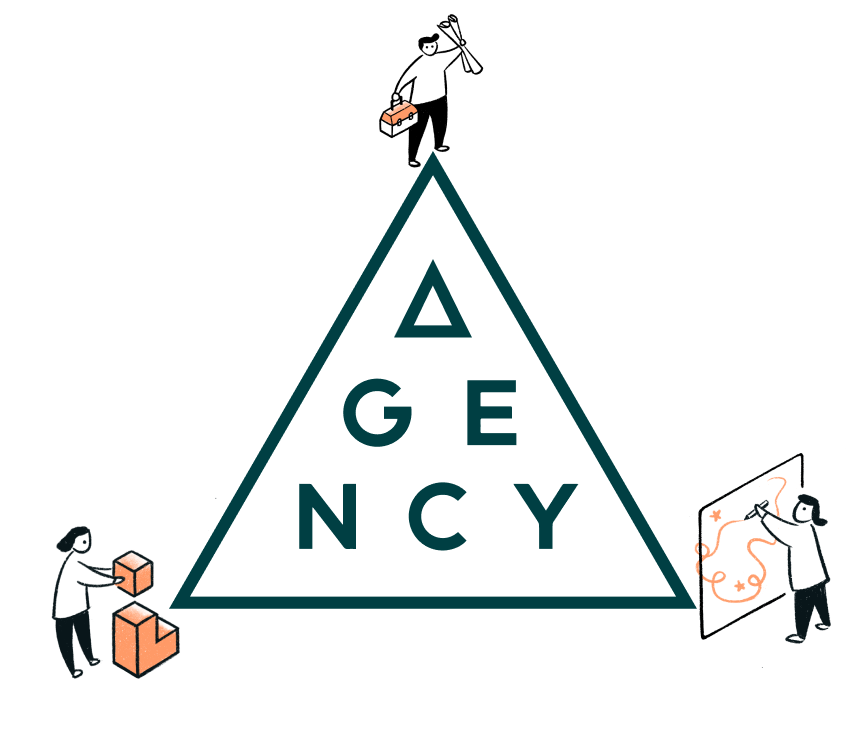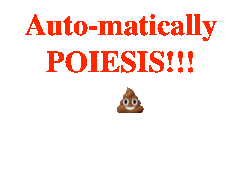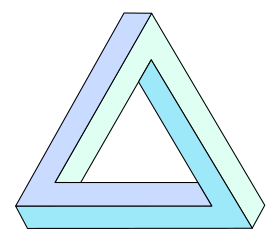
エージェンシー
Agency
Redesigning the dormitory experience for migrant workers.
エー ジェンシー(Agency)とは 活動的な個人、人、またはグ ループに代わって、特定の サービスを提供する個人または組織(an individual or organization providing a particular service on behalf of another active individual, person, or group) のことである。行為主体とも訳される。
| Agency
is the capacity of an actor to act in a given environment. It is
independent of the moral dimension, which is called moral agency. In sociology, an agent is an individual engaging with the social structure. Notably, though, the primacy of social structure vs. individual capacity with regard to persons' actions is debated within sociology. This debate concerns, at least partly, the level of reflexivity an agent may possess.[citation needed] Agency may either be classified as unconscious, involuntary behavior, or purposeful, goal directed activity (intentional action). An agent typically has some sort of immediate awareness of their physical activity and the goals that the activity is aimed at realizing. In 'goal directed action' an agent implements a kind of direct control or guidance over their own behavior.[1] |
エージェンシーとは、与えられた環境の中で行動する行為者の能力のこと
である。それは道徳的次元とは無関係であり、道徳的エージェンシーと呼ばれる。 社会学では、行為者とは社会構造に関与する個人のことである。しかし注目すべきは、社会学において、個人の行動に関する社会構造と個人の能力の優劣が議論 されていることである。この議論は、少なくとも部分的には、エージェントが持ちうる反射性のレベルに関するものである。 エージェンシーは、無意識的で不随意的な行動として分類されることもあれば、意図的で目標に向けられた活動(意図的行動)として分類されることもある。 エージェントは通常、自分の身体的活動とその活動が実現することを目的とした目標について、ある種の即時的な意識を持っている。目標指向型行動」では、 エージェントは自らの行動に対して一種の直接的な制御や指導を行う[1]。 |
| Human agency See also: Action (philosophy) Agency is contrasted to objects reacting to natural forces involving only unthinking deterministic processes. In this respect, agency is subtly distinct from the concept of free will, the philosophical doctrine that our choices are not the product of causal chains, but are significantly free or undetermined. Human agency entails the claim that humans do in fact make decisions and enact them on the world. How humans come to make decisions, by free choice or other processes, is another issue. The capacity of a human to act as an agent is personal to that human, though considerations of the outcomes flowing from particular acts of human agency for us and others can then be thought to invest a moral component into a given situation wherein an agent has acted, and thus to involve moral agency. If a situation is the consequence of human decision making, persons may be under a duty to apply value judgments to the consequences of their decisions, and held to be responsible for those decisions. Human agency entitles the observer to ask should this have occurred? in a way that would be nonsensical in circumstances lacking human decisions-makers, for example, the impact of comet Shoemaker–Levy on Jupiter. In philosophy The philosophical discipline in charge of studying agency is action theory. In certain philosophical traditions (particularly those established by Hegel and Marx), human agency is a collective, historical dynamic, rather than a function arising out of individual behavior. Hegel's Geist and Marx's universal class are idealist and materialist expressions of this idea of humans treated as social beings, organized to act in concert. There is ongoing debate, philosophically derived in part from the works of Hume, between determinism and indeterminacy. Structure and agency forms an enduring core debate in sociology. Essentially the same as in the Marxist conception, "agency" refers to the capacity of individuals to act independently and to make their own free choices, based on their will, whereas "structure" refers to those factors (such as social class, but also religion, gender, ethnicity, subculture, etc.) that seem to limit or influence the opportunities that individuals have. In other sciences Other notions of agency have arisen in the field of economics/management, psychology and social cybernetics: In economics (contract theory) Economic agency is an internal instrumentality through which external influences operate mechanistically on performance. Internal agency events are a reflection of the impact of external environments from which causal attributes are ignored, and the self-system is simply a repository and conduit for environmental forces.[2] In psychology The term of agency used in different fields of psychology with different meaning. It can refer to the ability of recognizing agents or attributing agency to objects based on simple perceptual cues or principles, for instance the principle of rationality,[3][4] which holds that context-sensitive, goal-directed efficient actions are the crucial characteristics of agents. This topic is thoroughly investigated by developmental and comparative psychologists to understand how an observer is able to differentiate agentive entities from inanimate objects, but it can be also related to the term of autonomous intelligent agency used in cybernetics. Agency can also imply the sense of agency, that is the feeling of being in control. Emergent interactive agency defines Bandura's view of agencies, where human agency can be exercised through direct personal agency.[5] Bandura formulates his view of agency as a socio-cognitive one, where people are self-organizing, proactive, self-regulating, and engage in self-reflection, and are not just reactive organisms shaped and shepherded by external events. People have the power to influence their own actions to produce certain results. The capacity to exercise control over one’s thought processes, motivation, affect, and action operates through mechanisms of personal agency. Such agencies are emergent and interactive, apply perspectives of social cognition, and make causal contributions to its own motivations and actions using ‘reciprocal causation’.[6] In social cybernetics Autonomous agency is able to embrace the concepts of both the economic agency and the emergent interactive agency. An autonomous system is self-directed, operating in, and being influenced by, interactive environments. It usually has its own immanent dynamics that impact on the way it interacts. It is also adaptable and (hence viable thus having a durable existence), proactive, self-organizing, self-regulating and so forth, participates in creating its own behaviour, and contributes to its life circumstances through cognitive and cultural functionality. Autonomous agency may also be concerned with the relationship between two or more agencies in a mutual relationship with each other and their environments, with imperatives for an agency's behaviour within an interactive context due to immanent emergent attributes.[7] In political economy Human agency refers to the ability to shape one’s life and a few dimensions can be differentiated. Individual agency is reflected in individual choices and the ability to influence one’s life conditions and chances. The individual agency differs strongly within the society across age, gender, income, education, personal health status, position in social networks, and other dimensions. Collective agency refers to situations in which individuals pool their knowledge, skills, and resources, and act in concert to shape their future. Everyday agency refers to consumer and daily choices, and finally strategic agency refers to the capacity to affect the wider system change. Political economy approaches can be used to conceptualize the agency enabling or limiting rule system, which constitutes the “grammar” for social action and that is used by the actors to structure and regulate their transactions with one another in defined situations or spheres of activity.[8] |
ヒューマン・エージェンシー こちらも参照のこと: 行為(哲学) エージェンシーは、何も考えずに決定論的なプロセスだけを伴う自然の力に反応する物体と対比される。この点で、エージェンシーは自由意志の概念とは微妙に 異なる。 自由意志とは、人間の選択は因果の連鎖の産物ではなく、著しく自由であるか、決定されていないという哲学的教義である。人間の主体性は、人間が実際に意思 決定を行い、それを世界に及ぼすという主張を含んでいる。人間がどのようにして意思決定を行うようになるのか、それは自由な選択であれ他の過程であれ、別 の問題である。 人間が代理人(=エージェント)として行動する能力は、その人間にとって個人的なものである。しか し、私たちや他者にとっての人間の代理行為から生じる結果について考察する ことは、代理人が行動した特定の状況に道徳的要素を投入することであり、したがって道徳的代理性を伴うと考えることができる。ある状況が人間の意思決定の 結果である場合、人間はその意思決定の結果に価値判断を適用する義務を負い、その意思決定に対して責任を負うことになる。例えば、シューメーカー・レビー 彗星の木星への衝突のように、人間の意思決定者がいない状況では無意味なことである。 哲学 エージェンシーを研究する哲学的学問分野は行為論である。ある種の哲学的伝統(特にヘーゲルとマルクスによって確立されたもの)では、人間のエージェン シーは個人の行動から生じる機能ではなく、集団的で歴史的なダイナミズムである。ヘーゲルの「ガイスト」とマルクスの「普遍的階級」は、人間が社会的存在 として扱われ、協調して行動するように組織されているというこの考えを観念論的、唯物論的に表現したものである。決定論と不確定性との間には、ヒュームの 著作に部分的に由来する哲学的な論争が続いている。 構造と主体性は、社会学における不朽の中核的議論を形成している。基本的にはマルクス主義の概念と同じで、「主体性」は個人が独立して行動し、自分の意志 に基づいて自由な選択をする能力を指すのに対し、「構造」は個人が持つ機会を制限したり、影響を与えたりすると思われる要因(社会階級だけでなく、宗教、 ジェンダー、民族性、サブカルチャーなど)を指す。 他の科学では 経済学/経営学、心理学、社会サイバネティクスの分野でも、エージェンシーという概念が生まれている: 経済学では(契約理論) 経済学(契約理論)では、経済的エージェンシーは、外部からの影響がパフォーマンスに機械的に作用する内部的な道具である。経済学(契約理論)では、経済 的エージェンシーは、外部からの影響がパフォーマンスに機械的に作用する内部的な道具立てである。内部的なエージェンシー・イベントは、原因属性が無視さ れた外部環境の影響の反映であり、自己システムは単に環境的な力の貯蔵庫であり導管である[2]。 心理学では エージェンシーという用語は、心理学のさまざまな分野でさまざまな意味で用いられている。エージェントを認識する能力、あるいは単純な知覚的手がかりや原 理に基づいてエージェントを物体に帰属させる能力を指すこともあれば、例えば、文脈に敏感で、目標に向けられた効率的な行動がエージェントの重要な特徴で あるとする合理性の原理[3][4]を指すこともある。このトピックは、観察者がどのようにしてエージェント的実体を無生物から区別できるかを理解するた めに、発達心理学者や比較心理学者によって徹底的に研究されているが、サイバネティクスで使用される自律知的エージェンシーという用語にも関連することが ある。エージェンシーはまた、主体性の感覚、つまり制御されているという感覚を意味することもある。 創発的相互作用的エージェンシーは、バンデューラのエージェンシーの見方を定義しており、そこでは人間のエージェンシーは直接的な個人的エージェンシーを 通じて行使することができる[5]。バンデューラは彼のエージェンシーの見方を社会認知的なものとして定式化しており、そこでは人々は自己組織化し、主体 的で、自己調整的で、自己反省に取り組んでおり、外部の出来事によって形成され、操られるだけの反応的な生物ではない。人々は、ある結果を生み出すために 自らの行動に影響を与える力を持っている。自分の思考プロセス、動機づけ、感情、行動をコントロールする能力は、個人的主体性のメカニズムを通じて働く。 そのようなエージェンシーは創発的で相互作用的であり、社会的認知の観点を適用し、「相互因果関係」を用いて自身の動機づけや行動に因果的な貢献をする [6]。 社会的サイバネティクスにおいては 自律的エージェンシーは経済的エージェンシーと創発的対話的エージェンシーの両方の概念を包含することができる。自律システムは自己主導的であり、相互作 用的な環境の中で動作し、相互作用的な環境から影響を受ける。それは通常、相互作用の仕方に影響を与える独自の内在的なダイナミクスを持っている。また、 適応可能であり(それゆえ持続可能な存在である)、主体的であり、自己組織化的であり、自己調整的であるなど、自らの行動の創造に参加し、認知的・文化的 機能を通じて生活環境に貢献する。自律的エージェンシーはまた、内在的な創発的属性に起因する相互作用的文脈におけるエージェンシーの行動に対する要請を 伴う、互い及びその環境との相互関係にある2つ以上のエージェンシー間の関係にも関係することがある[7]。 政治経済学において 人間の主体性とは、自分の人生を形成する能力を指し、いくつかの次元に区別することができる。個人の主体性は、個人の選択や自分の生活条件やチャンスに影 響を与える能力に反映される。個人の主体性は、年齢、性別、収入、教育、個人の健康状態、社会的ネットワークにおける地位、その他の次元にわたって、社会 内で強く異なっている。集団的主体性とは、個人が知識、技能、資源を出し合い、自分の将来を形成するために協調して行動する状況を指す。日常的主体性と は、消費者や日々の選択を指し、最後に戦略的主体性とは、より広範なシステムの変化に影響を与える能力を指す。政治経済学的アプローチは、社会的行動のた めの「文法」を構成し、定義された状況や活動領域において行為者が互いの取引を構造化し規制するために使用される、エージェンシーを可能にしたり制限した りするルールシステムを概念化するために使用することができる[8]。 |
| Action theory (philosophy) Actor–network theory Agency (sociology) Agency (psychology) Sense of agency Collective intentionality Corporate personhood Intentionality Nature and nurture Social action True Will |
行為論(哲学) アクター・ネットワーク理論 エージェンシー(社会学) エージェンシー(心理学) エージェンシー感覚 集団的意図性 企業人格 意図性 自然と育ち 社会的行動 真の意志 |
| https://en.wikipedia.org/wiki/Agency_(philosophy) |
|
| Bandura, A. (2001). "Social
Cognitive Theory: An Agentic Perspective". Annual Review of Psychology.
52 (1): 1–26. doi:10.1146/annurev.psych.52.1.1. PMID 11148297. S2CID
11573665. – Describes the form of agency. Juarrero, Alicia (1999). Dynamics in Action: Intentional Behavior as a Complex System (MIT Press). Examines agency from the perspective of complexity theory. Reconceptualizes intentional causality in terms of whole-part context-sensitive constraints. |
Bandura, A. (2001).
「社会的認知理論:行為者の視点」『心理学年鑑』52 (1): 1–26. doi:10.1146/annurev.psych.52.1.1.
PMID 11148297. S2CID 11573665. – 行為の形態について説明している。 Juarrero, Alicia (1999). 『Dynamics in Action: Intentional Behavior as a Complex System』(MIT Press)。 複雑系理論の観点からエージェンシーを検証。 全体-部分の文脈依存制約の観点から意図的な因果関係を再概念化。 |
| https://en.wikipedia.org/wiki/Agency_%28philosophy%29 |
第33 回(平成29=2017年)国際生物学賞の受賞者リタ・ロッシ・コルウェル博士の業績のひとつは「海洋細菌の生態学的研究から、その生存戦略における「生 存はしているが、培養は不可能な状態」の重要性を提唱し、微生物学、医学分野に大きな貢献」という。言い方を変えると、(人為的な)培養を「拒絶」する生 存戦略ということにならないだろうか、当該細菌をエージェンシーとしてとらえる見方である。
そして、権力からアイデンティティを構成するという点で、エージェンシーは「政治 的アイデンティティ」そのものである。政治的アイデンティティとは、法やイデオロ ギーが要請した「集団」に対して、政治権力構造が画一的な対応 をする際に、その構成員とみなされる人々のなかに生まれるアイデンティティのことである。
エージェント(= 代理人)と は、社会構造に関与する個人のことである。
サイバーパンクとは、 ネットワークコンピュータと主体的にリンケージのした人間主体ならびにヒューマノイド・エージェンシー/ヒューマノイド・エージェントのことをさす。
★︎代理人(=エージェント)▶︎▶︎︎▶︎▶︎︎▶︎▶︎︎▶︎▶︎︎▶︎▶︎
リンク:「学んでも何もわからない。行為するこ とが必要である」(ゲーテ)/「読んでも何もわからない。クリックするこ とが必要である」(垂水源之介)
文献
その他の情報
Copyleft,
CC, Mitzub'ixi Quq Chi'j, 1996-2099


Copyleft, CC, Mitzub'ixi Quq Chi'j, 1996-2099
☆
 ☆
☆